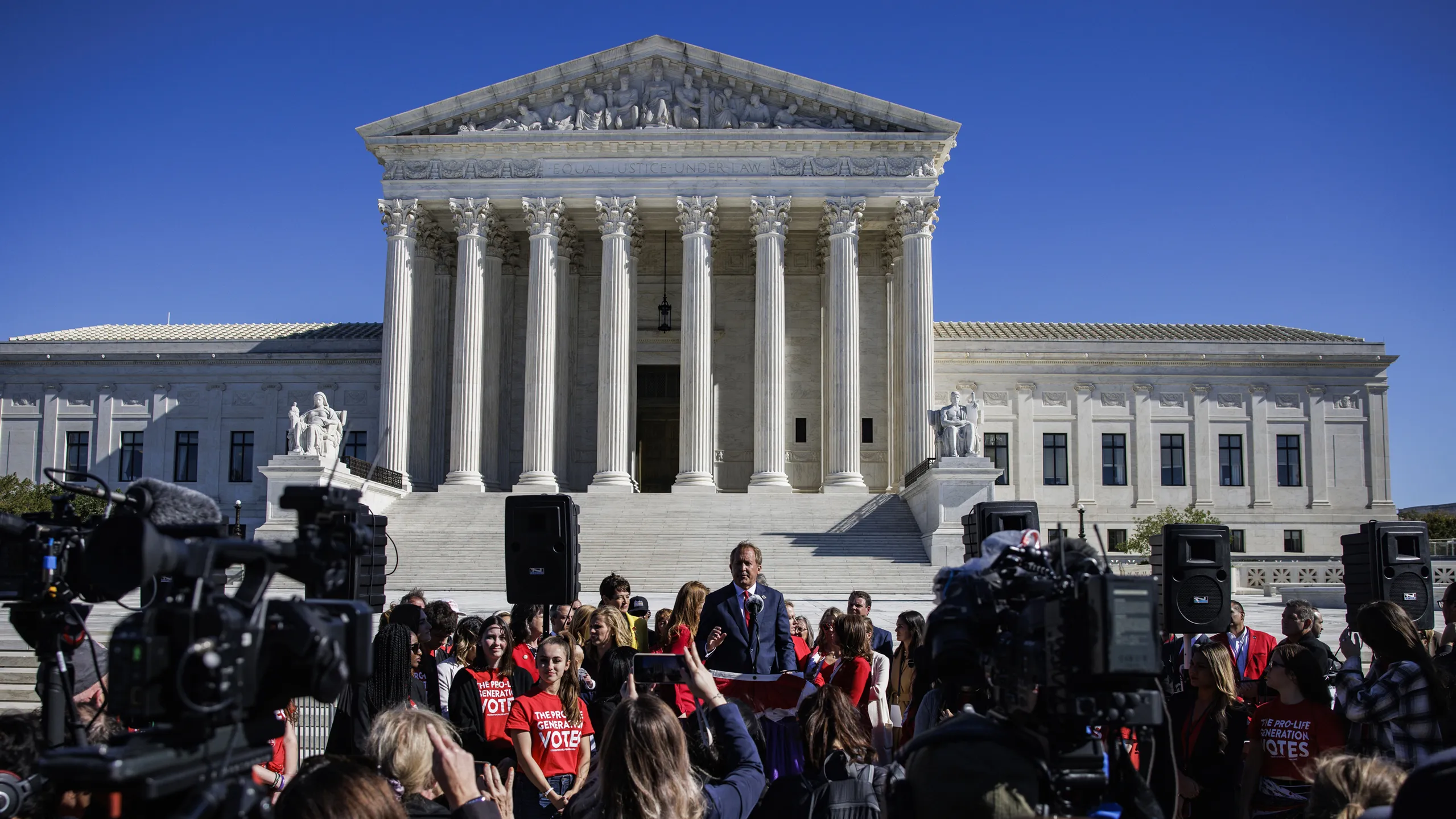- Resources
- The Texas Abortion Law and the Supreme Court’s Troubling Decision
The Texas Abortion Law and the Supreme Court’s Troubling Decision
September 11, 2024

The recent decision by the United States Supreme Court regarding the Texas abortion law, Senate Bill 8 (S.B. 8), has sparked controversy and raised significant concerns about the protection of constitutional rights and the integrity of the judicial process. In a series of opinions and dissents, the justices grapple with the unprecedented nature of the law and its potential implications for reproductive rights and the rule of law in the United States.
The core of the issue lies in the unique structure of S.B. 8, which effectively bans most abortions in Texas by prohibiting the procedure once cardiac activity is detected in the embryo, typically around six weeks into pregnancy. What sets this law apart is its enforcement mechanism, which delegates the authority to enforce the law not to state officials but to private citizens, who are empowered to bring civil lawsuits against anyone who performs or aids in obtaining an abortion in violation of the statute.
This novel approach effectively circumvents traditional legal avenues for challenging the law’s constitutionality, making it difficult for courts to intervene and provide relief to those affected.
The majority opinion, authored by Justice Alito, denies the application for injunctive relief, citing procedural complexities and the burden of proof on the applicants. The opinion acknowledges the serious questions raised regarding the constitutionality of the Texas law but ultimately concludes that the applicants still need to meet their burden to prevail in an injunction or stay application.
The opinion highlights the uncertainty surrounding law enforcement and the jurisdictional and procedural questions that remain unanswered.
Chief Justice Roberts, joined by Justices Breyer and Kagan, dissents from the majority opinion, expressing deep concerns about the unprecedented nature of the law and its potential consequences. They argue that the law effectively delegates the state’s power to prevent abortions to private citizens, creating a system that evades judicial scrutiny and undermines the rule of law.
They advocate for granting preliminary relief to preserve the status quo and allow the lower courts to consider the law’s legality more thoroughly and deliberatively.
Justice Breyer, joined by Justices Sotomayor and Kagan, echoes these concerns in his dissent, emphasizing the unconstitutional nature of the law and the imminent harm it poses to women seeking abortions in Texas. He argues that delegating enforcement authority to private citizens violates established precedents and undermines fundamental constitutional rights.
Justice Sotomayor, joined by Justices Breyer and Kagan, delivers a scathing dissent, condemning the Court’s failure to act in the face of a flagrantly unconstitutional law. She criticizes the majority for rewarding Texas’s efforts to evade judicial review and inflict harm on women seeking abortions.
Justice Kagan, joined by Justices Breyer and Sotomayor, joins the dissent, lamenting the Court’s decision to uphold a law that blatantly violates constitutional rights and undermines the rule of law. She criticizes the lack of thorough deliberation and reasoned decision-making, highlighting the dangers of the Court’s reliance on shadow-docket decisions.
In conclusion, the Supreme Court’s decision regarding the Texas abortion law raises troubling questions about the protection of constitutional rights and the integrity of the judicial process.
The law’s unprecedented nature and enforcement mechanism pose significant challenges to the rule of law and individual rights. As the legal battle over the Texas law continues, the judiciary’s role in upholding constitutional principles and protecting fundamental rights remains a critical issue for the future of American democracy.
The Allied Outsourcing, a reputable company specializing in law-related services, offers various options customized to meet its customers’ requirements. With highly proficient lawyers and legal experts, The Allied Outsourcing takes pride in providing excellent legal help across different areas, such as contract law, intangible property privileges, business management, and regulatory conformity.
The company’s dedication to superiority and customer contentment is apparent in its thorough method for each situation, guaranteeing careful research, strategic assessment, and productive representation.
Utilizing state-of-the-art technology and industry knowledge, The Allied Outsourcing consistently provides timely and cost-efficient options, empowering customers to manage challenging legal problems confidently and triumphantly.
Whether it involves creating contracts, supporting lawsuits, or offering regulatory advice, The Allied Outsourcing is a reliable associate that delivers trustworthy legal guidance and assistance to companies and organizations globally.
To Know More, Reach Out to: https://thealliedoutsourcing.com/contact/
All Categories
- Agile Legal Support (1)
- Case Law (88)
- Case Studies (6)
- Demand Letter (14)
- Deposition Summaries (11)
- Legal Outsourcing (3)
- Legal Research (72)
- Marketing (1)
- Medical Summaries (14)
- Others (4)
- Personal Injury (54)
- Virtual Assistant (59)
- Virtual Paralegal (2)
Related Blogs
Author
Maithili Salunkhe
Designation: Content Writer and Creator
4 Years extensive experience in content creation to offer specialized legal writing services. A deep understanding of legal principles and the ability to translate complex…Reviewer
Ruchi Bhakhri Sharma
Designation: CEO
25 years of combination of serving as a lawyer in India and paralegal support to US lawyers. Led a diverse team of legal professionals, project…Recent Blogs






